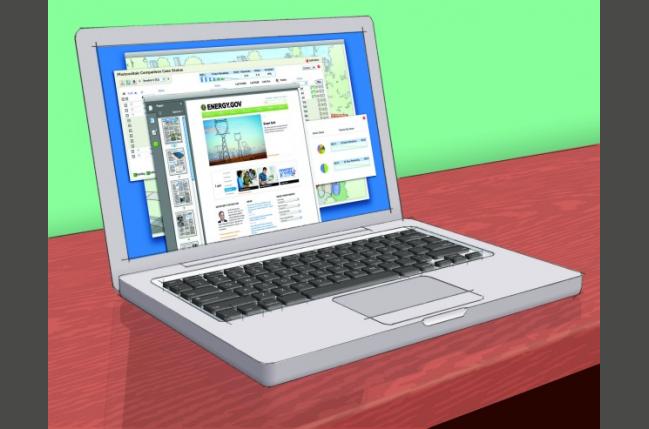
Keep Your Home Office Efficient with ENERGY STAR.
Laptops are far more efficient than desktop computers, especially ENERGY STAR qualified models.
 1 of 2
1 of 2Keep Your Home Office Efficient with ENERGY STAR.
Laptops are far more efficient than desktop computers, especially ENERGY STAR qualified models.
 2 of 2
2 of 2Use Smart Power Strips to Save Energy.
Many electronics go into standby mode when you turn them off. Reduce wasted (vampire) power by plugging electronics into a smart power strip, which can turn your electronics off completely.
Many people work from home at least one day per week. Working from home saves energy and time by cutting out the commute, but it may increase your home energy bills unless you use energy-saving office equipment.
ENERGY STAR-labeled office equipment is widely available. It can provide dramatic energy savings—as much as 90% savings for some products. Overall, ENERGY STAR-labeled office products use about half the electricity of standard equipment. Find ENERGY STAR products and standards.
Home Office Tips
- Selecting energy-efficient office equipment and turning off machines when they are not in use can result in significant energy savings.
- Using an ENERGY STAR-labeled computer can save 30%-65% energy than computers without this designation, depending on usage.
- Spending a large portion of time in low-power mode not only saves energy but helps equip-ment run cooler and last longer.
- Putting your laptop AC adapter on a power strip that can be turned off (or will turn off automatically) can maximize savings; the transformer in the AC adapter draws power con-tinuously, even when the laptop is not plugged into the adapter.
- Using the power management settings on computers and monitors can cause significant savings.
- It is a common misperception that screen savers reduce a monitor's energy use. Use automatic switching to sleep mode or simply turn it off.
- Another misperception, carried over from the days of older mainframe computers, is that equipment lasts longer if it is never turned off.
Long-Term Savings Tip
Consider buying a laptop for your next computer upgrade; laptops use much less energy than desktop computers.
Home Electronics Tips
- Look for energy-saving ENERGY STAR home electronics.
- Unplug appliances, or use a power strip and use the switch on the power strip to cut all power to the appliance, to avoid "vampire" loads. Many appliances continue to draw a small amount of power when they are switched off. These vampire loads occur in most appliances that use electricity, such as DVD players, TVs, stereos, computers, and kitchen appliances. Unplug battery chargers when the batteries are fully charged or the chargers are not in use.
- Use rechargeable batteries for products like cordless phones and digital cameras. Studies have shown they are more cost effective than disposable batteries. If you must use disposables, check with your trash removal company about safe disposal options.

